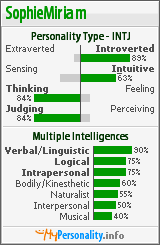1. For some reason, questions about heresy keep popping up all over the place recently. And they all seem to lead me to the same thoughts.
2. It all started with reading the book, The Name of the Rose, which a good friend recommended and lent to me. The book is set during the Franciscan controversy, about whether Jesus had things, and whether Christians should have things, or whether they were required to live in poverty, and what that all meant anyway. One of the characters in the book made the point that the majority of people who get caught up in heretical movements are not trying to be heretics. An inspiring preacher comes along who talks about dedicating your life to Christ, so you follow him. And then it turns out his theology is all flawed and so he and you are both heretics, but you are just a medieval farmer, so you had no idea about theology anyway! You're a Cathar, because that's who came by, not because you're actually deeply committed to Catharism. I thought this idea was super interesting, and probably true.
3. Then, in my Medieval Mindset class, we talked about the same time period. My teacher advanced the theory that St. Francis was canonized so quickly because the Pope was worried that people would follow St. Francis rather than him, and so he canonized him to tie the St. Francis followers into the Roman Catholic Church. Now, to me, this sounds a little crazy, especially if you think that canonizations are divinely inspired. But what was very interesting was how much some heresies overlap with other, orthodox, traditions. The line between heresy and orthodoxy is so very thin in some places!
4. In my theater class, we discussed and saw the play Daniel Stein. It's based on a book which was originally in Russian, which is loosely based on a real person. Anyway, the story is of a Jewish man who works as a translator for the Gestapo in WWII. After he uses his inside knowledge to help a Jewish ghetto, he has to flee. He hides with Catholic nuns, becomes Catholic, and then a Catholic priest. He goes to Israel to try to found a community like the original church in the first century, before Judaism and Catholicism became so different from each other. However, he gets into all sorts of trouble with the church, because part of what he does is reject Church doctrines (like the Trinity) that were solidified in later centuries. These conflicts never get really straightened out because Daniel dies in a car accident. Nevertheless, it's interesting to me that what got Daniel into trouble was not so much his beliefs as his lack of beliefs.
5. A side note to a paper I am writing is the heresy of Joachim von Fiore. He wrote a book attacking Peter Lombard and his doctrine of the Trinity. Then he sent his book to the pope, to get an opinion on the orthodoxy of his opinions so he could know if they were in line with Church teaching. And, too bad for him, the Fourth Lateran Council condemned him and his book, and said that Peter Lombard was correct. It did praise Peter Lombard, though, for checking.
6. Yesterday, a friend of mine and I were discussing religion and the Church. (This is the same friend who recommended The Name of the Rose. He and Kevin and I have some awesome deep discussions. He also might be reading this, so hi!) Anyway, he started to ask a question, prefacing it with the two caveats that one, he hoped this wasn't offensive and he didn't mean it offensively, and two, he knew it might be hard for me to answer this question objectively, so I was prepared for some tricky theology question or something. But the question was, aren't there some popes and bishops throughout history who have done some really evil things? To which, of course, the answer is yes by any moral standard. My father likes to say that given the people who have led the Church in the past, the fact that she still exists is a testament to her divine guidance!
7. But what it all comes down to, I think, is authority. Does the Church have authority, or not? If the Church has authority and is inspired by the Holy Spirit, then you follow her. If not, you don't. The line between orthodoxy and heterodoxy is fine, but the line is there. To a regular person, it's so hard to sort out. For God, it's easy. I would hate to be a Protestant and have to figure everything out by myself. I don't know what I would do if I didn't have the Church to guide me in my theology, especially in my metaphysics.
Two Years Later… Surprise!
3 weeks ago



No comments:
Post a Comment